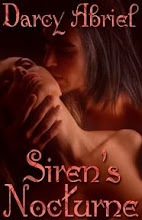
In reading "The Book of Were-Wolves: Being an Account of a Terrible Superstition" by Sabine Baring-Gould, I like the following passage. Sort of makes one realize how civilized we have become or maybe jaded is the better term. But in order to understand the possible foundation of the paranormal, this makes sense on how a primitive species might "create" monsters in the night that carry forward and alter in verbal storytelling.
"...yet we do not suppose that the wind has a voice. The wild primaeval men thought that it had, and because dogs and wolves howl, and the wind howled, and because they had seen dogs and wolves, they concluded that the storm-wind was a night-hound, or a monstrous wolf, racing over the country in the darkness of the winter night, ravening for prey."
The author refers to the "untaught mind." He goes into depth on the possibilities of how certain tales came about -- swans into swan maidens, wolves into werewolves, lightning as a forked, heavenly fiery serpent.
In essence we know too much to really appreciate, perhaps understand, the imagination explanations given to us in fairy tales and folk lore. And we read with an educated mind as in the revelation of "atmospheric mysteries." We have an understanding of outer space far beyond the primitive. We don't need to make up stories to explain "what's out there." But, especially in fiction, where's the fun in that?
Build a tale with the untaught might, bend it, shape it, explore it, twist it, make it come alive in a new and different fashion. But first explore it with the mind of primitive innocence.
Photo: Courtesy of Flickr.
Build a tale with the untaught might, bend it, shape it, explore it, twist it, make it come alive in a new and different fashion. But first explore it with the mind of primitive innocence.
Photo: Courtesy of Flickr.













No comments:
Post a Comment